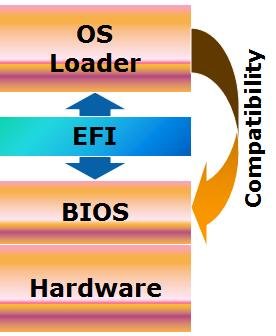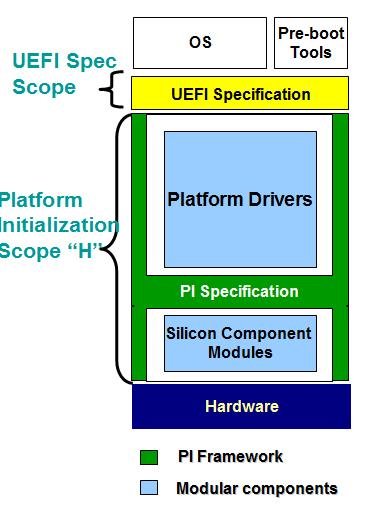Say Goodbye To Your BIOS: Hello, UEFI!
Industry Support? Fail.
Wikipedia’s EFI page shows a list of EFI-toting systems in 2008 from IBM, HP, and HP Compaq, adds more systems for 2009 from IBM and Dell, and refers to systems mentioned in an UEFI Forum document. The 2008 list also mentions MSI motherboards with ClickBIOS. Since we’re closer to the component companies than to system builders, we decided to look around and get a feeling on where the big motherboard vendors are with their EFI ambitions.
Asus:
“We currently offer an EFI solution for the P5Q Deluxe, but it is still in beta status. It will depened on public demand whether or not we add EFI updates for additional platforms.”
Asus’s EFI software for the P5Q Deluxe is available here. A thread on the Asus forums still contains a lot of bug reports on this, though.
Foxconn:
“Currently, our boards do not use the Unified Extensible Firmware Interace feature and we don’t have products under development utilizing this type of BIOS.”
Gigabyte:
Get Tom's Hardware's best news and in-depth reviews, straight to your inbox.
“We’re working on possibly bringing UEFI to our products, but we don’t have a timeframe yet.”
Intel:
“An increasing number of platforms will be outfit with UEFI, rather than a conventional BIOS.”
However, we found that Intel introduced limitations to partitions larger than 2TB. Although UEFI could have an operating system boot from such a large partition when using the GPT (GUID Partition Table) instead of the MBR, Intel says that the “RAID option ROM will only allow a RAID volume to be bootable if it is < 2TB.”


MSI:
“MSI shipped an UEFI-enabled platform with ClickBIOS based on the P45 chipset, but the product has reached end of life. ”
Moving On
We understand that this area is still new, but it appears as if the key motherboard makers aren’t very receptive to the obviously desirable system interface. The processes behind these decisions are undoubtedly complex, and we don’t want to overrate this yet. But we also believe that it’s about time for the industry to seriously look at making the switch. There should at least be a clear commitment to making certain platforms upgradeable to UEFI when necessary. Otherwise, I wouldn’t want to buy an expensive motherboard knowing that support might not last long.
EFI-based features, such as integrated overclocking functionality, might still have to be developed, so we decided not to look at different motherboards with UEFI support and make judgements based on premature or hesitant solutions. But there is one scenario that will actually require UEFI soon: if you want to boot from a partition that is larger than 2TB, you positively need UEFI and GPT.
Storage appliances that potentially exceed 2TB capacity by utilizing RAID technology already cross this line when used as eSATA-based boot volumes. Therefore, we decided to pick one of the more advanced UEFI implementations and look at whether or not we could work on it using high-capacity system drives.
Current page: Industry Support? Fail.
Prev Page What UEFI Can Do For You Next Page Test Motherboard: Intel DP55KG (With RAID Limitations)